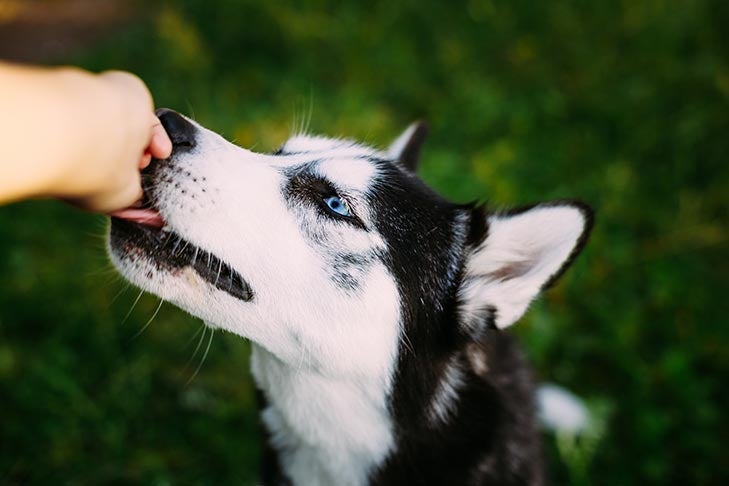Is almond butter safe for dogs?
Just like their parent nut, almond butter has mixed reviews among veterinarians. For example, Rau Animal Hospital does not advise against the occasional taste of almond butter for most dogs, while Hill’s Pet encourages giving your pup peanut butter instead.
Even so, almond butter can be easier to digest than complete almonds, notes Hill’s Pet, so your dog might not experience as much stomach upset. This can be a relief at the moment, but can also encourage your pup to eat more almond butter than they should. This is just one reason why pancreatitis is just as big a concern — if not bigger — when nuts are processed into butter.
One sneaky ingredient that hides in some nut butters can also be fatal to dogs. Xylitol, which is also marketed as birch sugar, is an artificial sweetener found in many low-calorie and no-sugar products (via Rau Animal Hospital). Even a small amount can be fatal, especially to small dogs, so make sure to triple-check any labels if your dog does get into almond butter.
Why Almonds Are Bad for Dogs
While dogs might love the taste of almonds, consuming them can cause gastric intestinal distress. If your dog accidentally eats a few, be on the lookout for these symptoms:
Almonds, like most nuts, are high in fat and can put your pup at risk of developing pancreatitis. It’s a serious condition that requires the attention of your veterinarian.

This snack also poses another dangerous problem: obstruction. Almonds can block your dog’s esophagus, intestines, or windpipe, especially in small breeds. These obstructions can be fatal if not treated, and they occasionally require surgery.
Flavored almonds come with unique risks. The spices and flavorings can irritate your dog’s stomach, while the salt in the seasoning can lead to water retention and salt toxicity if consumed in large quantities.
Diagnosis of Almond Poisoning in Dogs
Symptoms related to this condition will prompt your veterinarian to get a full history of the patient, taking particular note of what foods your pet had access to recently. Typically, a general physical examination will be given and a complete blood count and chemistry profile will be completed as well. Urine, stools, and vomitus will also be tested and may expose underlying diseases or toxins such as aflatoxin. A preliminary diagnosis based on the physical exam and history may prompt treatment even before the final diagnosis is completed.
Further testing will depend on the symptoms that are being exhibited. If your dog is showing signs of damage to the esophagus or showing signs of dehydration, an x-ray or ultrasound of the throat and chest area may be recommended to check for tearing of the esophagus or enlargement of the heart. Ultrasounds can be used to the abdominal area and may reveal enlargement of the pancreas or fluid accumulation in this area.